How could assisted dying laws change?
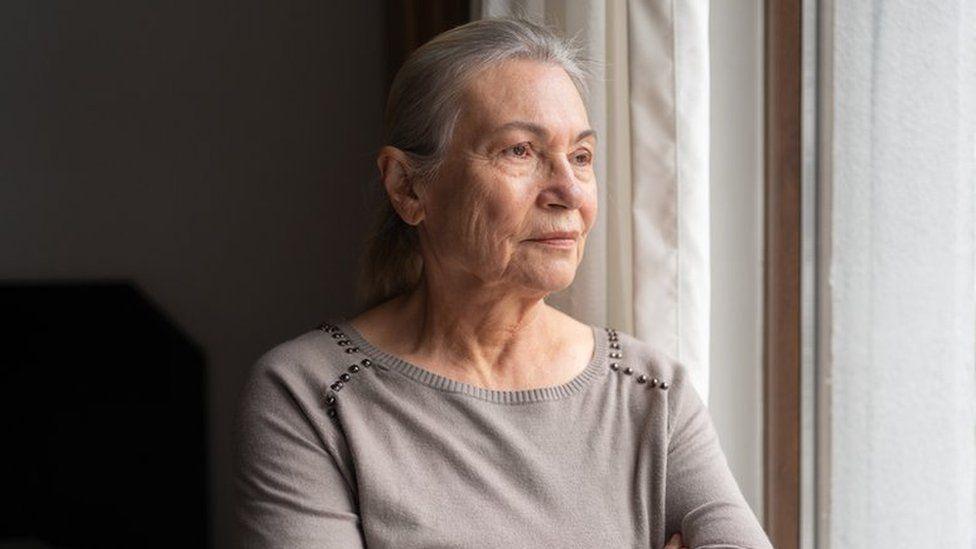
- Published
MPs have backed legalising assisted dying in England and Wales, by a margin of 23 votes.
The Terminally Ill Adults (End of Life) Bill now needs to be considered by the House of Lords before it can become law.
In Scotland, a separate assisted dying bill has received the initial backing of MSPs and is being considered in more detail.
What is the proposed law on assisted dying in England and Wales?
The bill, introduced by Labour MP Kim Leadbeater, would allow terminally ill people to end their life, external if they:
are over 18, live in England or Wales, and have been registered with a GP for at least 12 months
have the mental capacity to make the choice and be deemed to have expressed a clear, settled and informed wish, free from coercion or pressure
are expected to die within six months
make two separate declarations, witnessed and signed, about their wish to die
satisfy two independent doctors that they are eligible - with at least seven days between each assessment
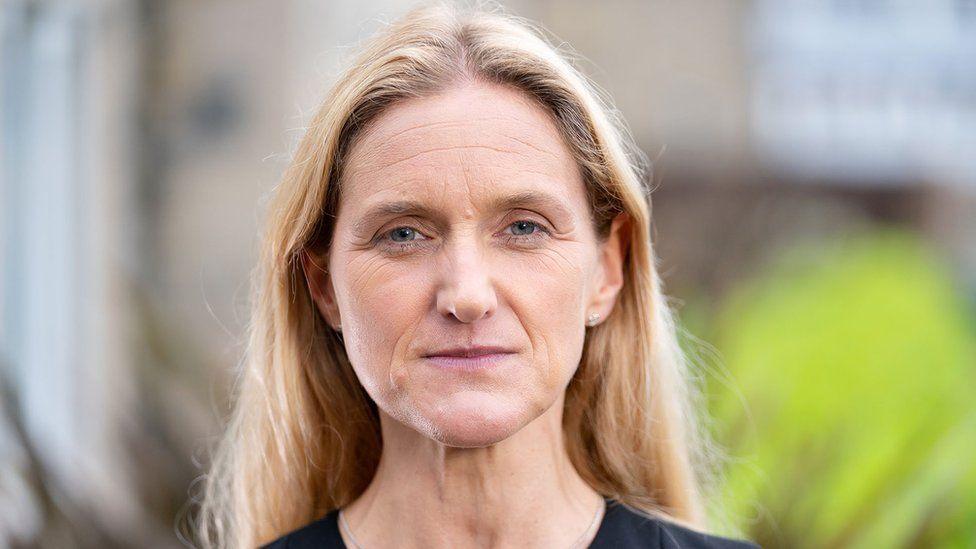
Labour MP Kim Leadbeater says too many people "have a horrible, harrowing death" under the current system
Once an application has been approved, the patient would have to wait 14 days before proceeding.
A doctor would prepare the substance being used to end the patient's life, but the person would take it themselves.
The bill defines the co-ordinating doctor as a registered medical practitioner with "training, qualifications and experience" at a level to be specified by the health secretary. It does not say which drug would be used.
It would be illegal to coerce someone into declaring they want to end their life, with a possible 14-year prison sentence.
How have the proposals changed?
The proposed legislation was first backed by MPs in a vote in November 2024, clearing the way for months of debate and scrutiny.
A committee of 23 MPs - 14 supporters and nine opponents - has examined the proposed legislation. It held public hearings and took evidence from experts.
Under the original proposals, a High Court judge would have had to approve each request to end a life.
However, the committee accepted Leadbeater's suggestion that a three-person panel including a senior legal figure, a psychiatrist and a social worker should oversee applications instead.
Other changes include:
doubling the maximum time between the bill being passed and the law coming into effect from two years to four
clarifying that doctors must set out palliative care options during initial discussions
confirming that all health workers will be able to opt out of the assisted dying process
establishing that health professionals will not be able to initiate conversations with under-18s about assisted dying
making clear that nobody would count as terminally ill if they have voluntarily stopped eating or drinking
introducing a ban on advertising assisted dying services
ensuring assisted deaths will not be automatically referred to a coroner
the government must publish a review of palliative care services within a year of the law's start
MPs have had free votes on the proposals, which meant they could decide whether or not to support the bill and did not have to follow a party line.
On Friday 20 June, 314 MPs voted in favour and 291 against - a majority of 23.
How might the law change in Scotland?
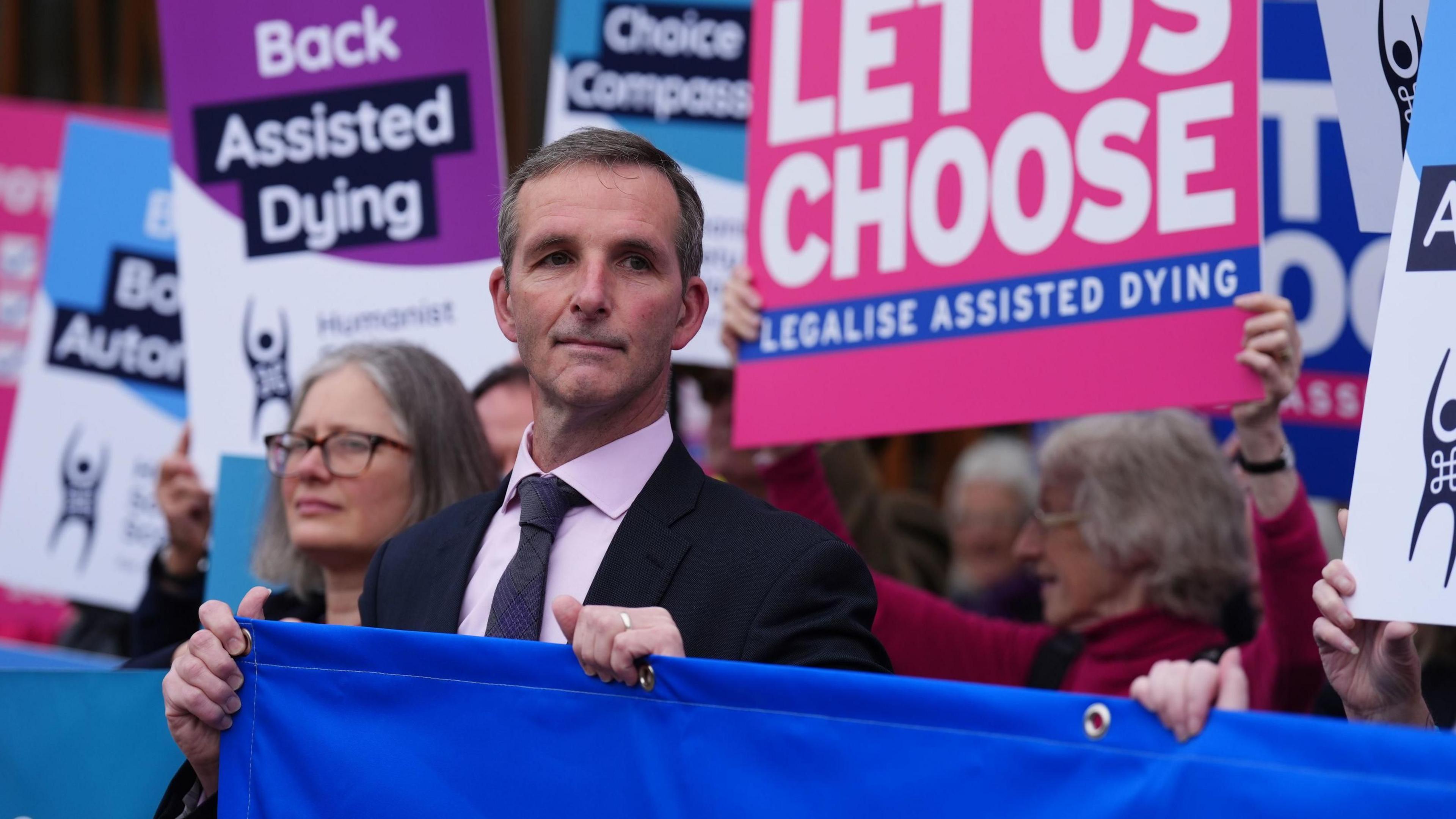
Lib Dem MSP Liam McArthur with campaigners outside the Scottish Parliament
The assisted dying bill being considered in the Scottish Parliament says applicants would have to:
be resident in Scotland for at least 12 months
be registered with a GP in Scotland
be terminally ill
have the mental capacity to make the request
Liberal Democrat MSP Liam McArthur, who drafted the Assisted Dying for Terminally Ill Adults (Scotland) Bill, said he will raise the proposed minimum age from 16 to 18.
On 13 May, MSPs backed the "stage one vote" on the bill's general principles by 70 votes to 56, with one abstention.
MSPs can now propose major amendments, ahead of a vote on the final draft.
That process is expected to take several months.
Who opposes assisted dying?
Paralympian and House of Lords crossbencher Baroness Grey-Thompson is a vocal critic.
She is worried that disabled and other vulnerable people could be put under pressure to end their lives - and that doctors may struggle to make accurate six-month diagnoses.
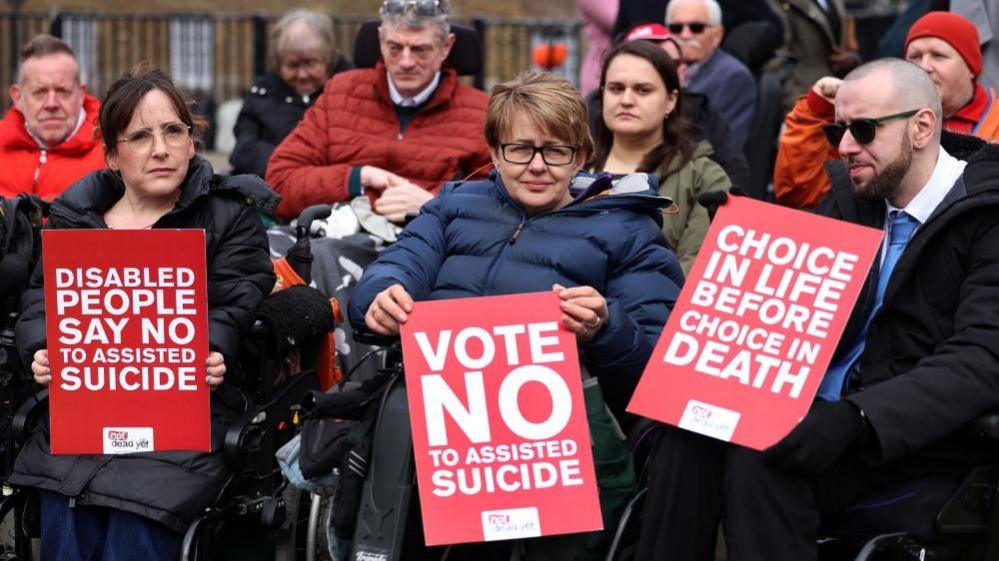
Baroness Grey-Thompson (C) is a long-standing critic of legalising assisted dying
Actor and disability-rights activist Liz Carr, who made the BBC One documentary Better Off Dead?, also opposes the legislation.
"Some of us have very real fears based on our lived experience and based on what has happened in other countries where it's legal," she wrote on X.
Dr Gordon Macdonald, from campaign group Care Not Killing, said the bill ignores the wider "deep-seated problems in the UK's broken and patchy palliative care system".
Talking about the Scottish bill, Labour MSP Pam Duncan-Glancy - the first permanent wheelchair user to be elected to Holyrood - said it could become "easier to access help to die than help to live".
The British Medical Association, external, which represents doctors, and the Royal College of Nursing, external are neutral on the issue.
Why do supporters want assisted dying legalised?
Leadbeater argues that some people "have a horrible, harrowing death", however good their end-of-life care is.
The Dignity in Dying campaign group said her bill provides the "most detailed, robust proposals" on the issue that "Westminster has ever considered".
Chief executive Sarah Wootton said that the fact that every year "up to 650 terminally ill people end their own lives, often in lonely and traumatic ways," proves the need for reform.
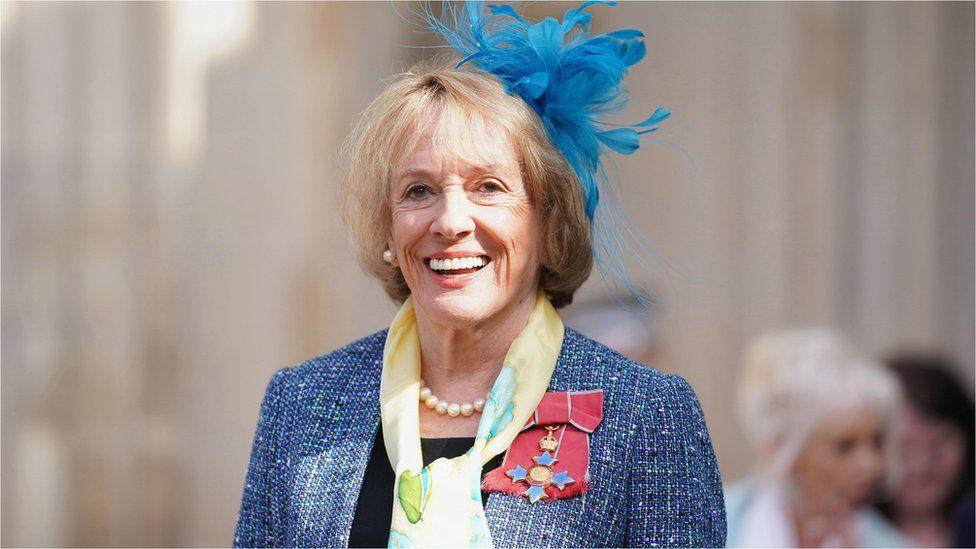
Dame Esther Rantzen, who has stage four lung cancer, has joined Dignitas in Switzerland
Broadcaster Dame Esther Rantzen, who has stage-four lung cancer, is another long-standing campaigner for change. "All I'm asking for is that we be given the dignity of choice," she said.
How might the law change in the Isle of Man and Jersey?
The Isle of Man and Jersey are both part of the British Isles but set their own laws.
The Isle of Man passed its Assisted Dying Bill in March 2025, and the new system could be in place by 2027.
Jersey's politicians approved plans to allow assisted dying for those facing "unbearable suffering" in May 2024.
The final legislation is being written. If approved, new rules could take effect from summer 2027.
What are assisted dying, assisted suicide and euthanasia?
There is some debate over exactly what the terms mean, external.
However, assisted dying generally refers to a person who is terminally ill receiving lethal drugs from a medical practitioner, which they administer themselves.
Assisted suicide is intentionally helping another person to end their life, including someone who is not terminally ill. That could involve providing lethal medication or helping them travel to another jurisdiction to die.
Euthanasia is the act of deliberately ending a person's life to relieve suffering in which a lethal drug is administered by a physician. Patients may not be terminally ill.
There are two types: voluntary euthanasia, where a patient consents; and non-voluntary, where they cannot because, for example, they are in a coma.
Where is euthanasia or assisted dying legal around the world?
Switzerland has allowed assisted suicide since 1942. Its Dignitas facility accepts foreign patients and between 1998 and 2023 it helped 571 Britons to die, external.
Assisted suicide is also legal in Austria.
In the US, 10 states allow "physician-assisted dying" where doctors can prescribe lethal drugs for self-administration.
In Canada, voluntary euthanasia or "medical assistance in dying" can be provided by a doctor or nurse practitioner, either in person or through the prescription of drugs for self-administration.
Voluntary euthanasia and assisted suicide are also legal in Spain and Colombia.
Assisted dying is legal in some parts of Australia - though the law differs across states - and in New Zealand.
The Netherlands, Belgium and Luxembourg let people who are not terminally ill receive assistance to die.
In May 2025, MPs in France backed a bill which would give some people in the last stages of a terminal illness the right to assisted dying. Supporters hope it will become law by 2027.
Update 3 January 2025: This piece has been updated to give further detail on the definition of a co-ordinating doctor.